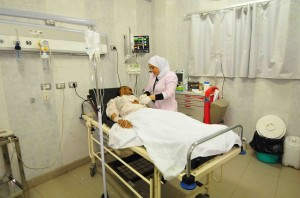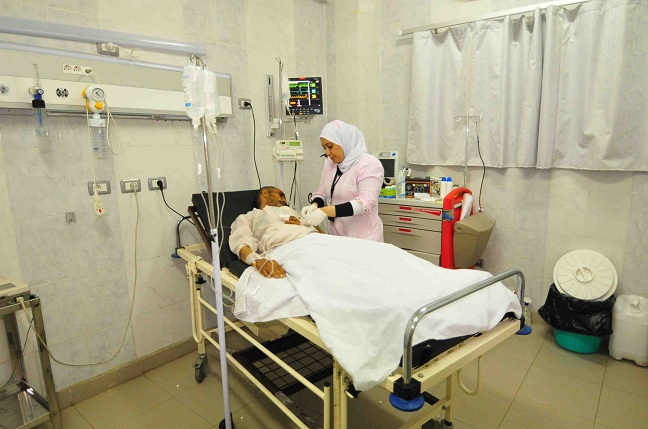
(DNE File photo)
The state budget for the 2013-2014 fiscal year, currently up for review by the Shura Council, includes EGP 32.7bn in spending for the healthcare sector, up from EGP 27.4bn the previous year, representing a 9.3% increase.
The new plan will also the amount of money spent on medicine from 3.106bn last year to EGP 3.314bn, representing a 6.7% increase.
Abdel Ghafar Salihin, Chairman of the Shura Council’s health committee, stated that the amount going towards the medicine subsector was good, but that problems existed in terms of retail and distribution. He pointed to the need to better distribute reserves of medicine, in addition to reassessing the allotted amounts of medicine given to individual health directorates as stipulated in the country’s budget. He added that further aid needed to be given to help fund treatment for a number of illnesses, including liver disease. The amount of aid set aside in the country’s budget, he said, should also take into account the individual needs of each of Egypt’s governorates.
He further stated that not all of the money that was supposed to be provided to Egypt’s health sector during the 2011-2012 fiscal year actually ended up making its way into the sector. Although EGP 2.757bn was stipulated in the country’s budget, only EGP 2.145, 77.78% of the total amount, was actually received.
Reham Rafat, a doctor in a teaching hospital, stated that the hospital suffers from a severe shortage in available medicine, saying that the hospital’s pharmacy possesses only one type of medicine for each disease needing to be treated. This limits doctors’ abilities to perform their duty, she said, as many are forced to pay for the costs of necessary medicines out of their pocket.
Helmi Al-Rawi, a researcher at the Budgetary and Human Rights Observatory, stated that the amount of funds provided for medicine costs to the country’s health sector increased by EGP 200m this fiscal year, totaling EGP 3.385bn, a small amount considering the rise of inflation and prices increases seen throughout the country. After taking into account the above stated monetary issues, Al-Rawi claimed that in terms of purchasing power, the amount of money allotted to pay for the cost of medicine this year is in fact smaller than that set aside during the previous fiscal year.
Translated from Al-Borsa




